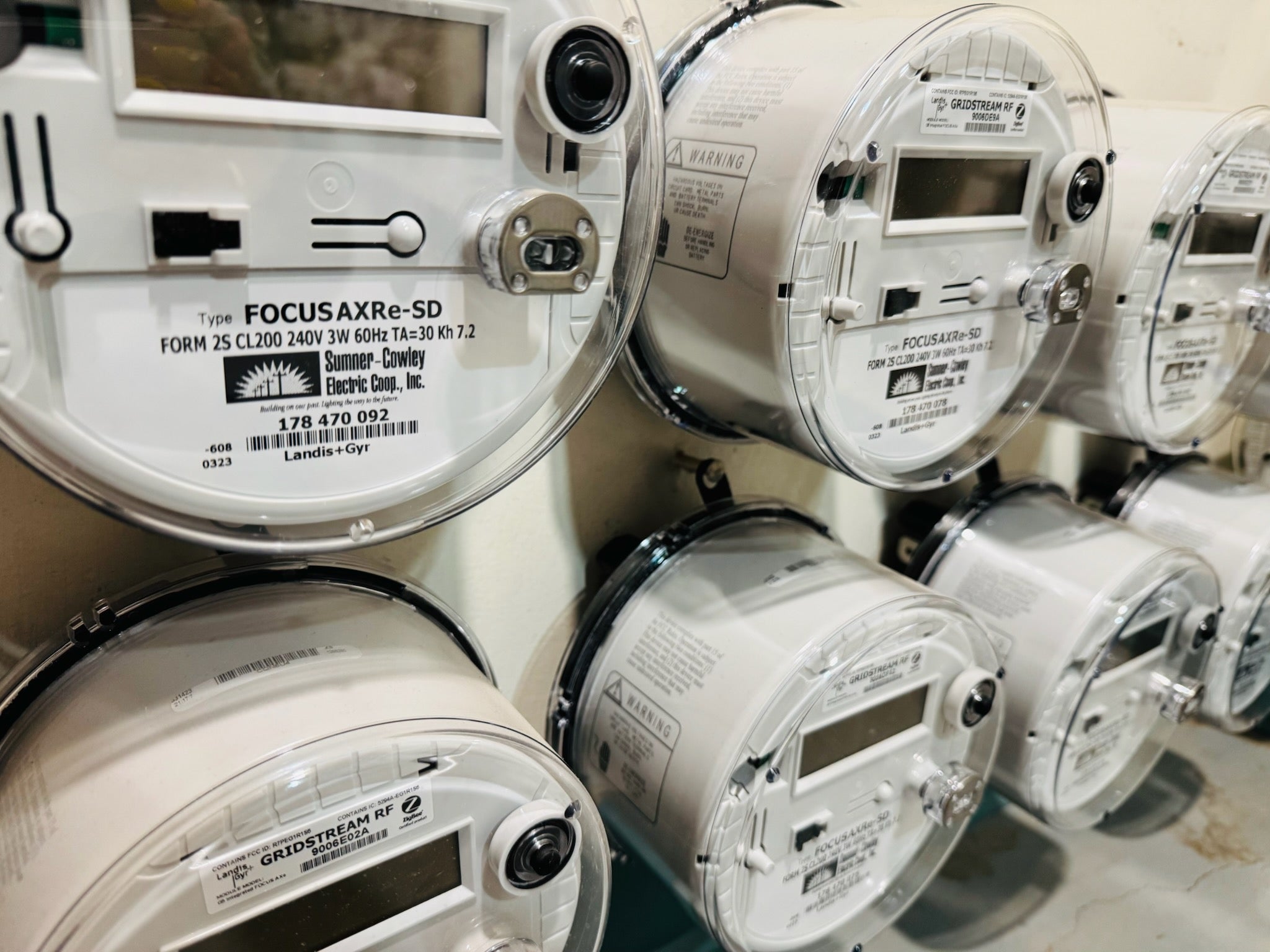888-326-3356 2223 North A St Wellington, KS 67152
Efficient & Accurate Readings
Automated Meters FAQ
Are automated meters accurate?
Digital meters are rigorously tested for accuracy before leaving the manufacturer.
Public service commissions require meter manufacturers to supply independently-certified testing results to prove that the meters generate "on-the-mark" measurements.
Prior to installation, utilities perform accuracy tests.
Repeated tests confirm digital meters are accurate, in some cases more accurate than analog meters.
You can monitor your usage by the hour using our SmartHub service on your web browser or on your phone with our SmartHub app.

